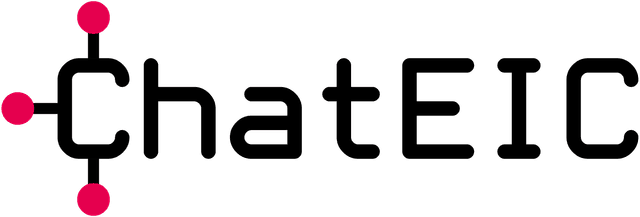
How to Prepare a Good EIC Accelerator Application: General Project Advice
The EIC Accelerator funding (grant and equity, with blended financing option) by the European Innovation Council (EIC) and European Commission (EC) is a selective program designed for startups and Small- and Medium-Sized Enterprises (SME).
The funding per project can reach €17.5 million in total (€2.5 million in grant and €15 million in equity) and applicants often rely on professional writers, freelancers or consultants to support their applications since the evaluation criteria are often obscured in the EIC’s communication (see Evaluation).
This article presents a short list of what a company needs to succeed in the EIC Accelerator program. While the following list will not be true for every successful company, it is a useful guide to adhere to when venturing into the lengthy and high-risk EIC Accelerator evaluation process (see Winning Candidate).
1. Letters of Intent (LOI) and Traction
While it is possible to succeed in Step 1 and Step 2 of the EIC Accelerator with a poor commercial description, it is very difficult to succeed in the Step 3 interviews without clear commercial traction and strategies (see Interview Preparation). This is due to the background of the remote evaluators for Step 1 and 2 in comparison to the Step 3 jury whereas the former often lacks commercial expertise while the latter lacks technical expertise.
Still, LOI’s are helpful in Step 2 and Step 3 of the evaluation process since they demonstrate a market need and real customers who have an interest in purchasing a product. They also allow the applicants to introduce case studies that can further elaborate on the impact of the innovative solution.
Any EIC Accelerator applicant should assure that they have commercial traction in some capacity since the program is designed to scale up rather than seed-fund companies. The general rule is to obtain as many support documents as possible whereas contracts, letters of intent, letters of support, customers lists and even informal email requests are helpful.
2. Clear Disruption Potential
There should be clear evidence that the innovation has the potential to disrupt the status quo which can be based on political pressures (i.e. climate, semiconductors, vaccines, AI) or can be focused on an isolated industry (i.e. real estate, computing, diagnostics).
The narrative should contain a broad explanation of the current state of the industry and clearly explain what is missing or what the lynchpin of disruption will be. If an industry is saturated, has many competing offerings and differentiation is not easily understood (or absent), then a disruptive potential will be difficult to argue for.
Clarity and simplicity are the keys in this aspect since, if the evaluator is confused about why the project is important, they will not provide a good review.
3. Innovative Technology
In the EIC Accelerator program, there is no way around a sophisticated technology. While it is clear that not all funded companies fall into the DeepTech category, no company’s technology will be funded if it was not complex and very difficult to copy.
While the narrative should be broad but easy to understand, the technology should be explained in all of its complexity. The EIC Accelerator template often requests that no jargon is used but no evaluator will ever admit that they are too ignorant to understand something.
If a technical description is too sophisticated for them, evaluators will often accept it at face value and leave a positive review. Of course, this is only true if the technical description is well-structured and -written, even if complex.
On the other hand, if a technical description is simplistic and not comprehensive, the evaluators will claim that it is not innovative or that it is incremental rather than ground-breaking.
4. Consistent and Detailed Descriptions
A very common cause of a bad evaluation in the EIC Accelerator program is a lack of text and arguments. Since the proposal is extremely lengthy (see Timeline), applicants who do not contract professional grant writers or consultants often try to cut corners.
This is, of course, to the detriment of the perceived project quality.
It is important to decide, in the beginning, on the clear messages and quantifiers that need to be presented. The problem should be well quantified from a global, EU and customer perspective. The same is true for the solution which must have clear quantifiers for the benefits of the product and the needs of the market.
These numbers and facts should be used throughout the application and can be repeated in every section which benefits from them. If something is true and impactful, evaluators will generally not complain even if they have read the same statistic dozens of times.
Since the application is very long, the most important numbers and facts should be repeated the most often so that they will not be missed. Of course, this should not be an excuse to copy/paste the same text everywhere but should be an incentive to answer questions in a new way using consistent data.
These tips are not only useful for European startups, professional writers, consultants and Small and Medium-Sized Enterprises (SME) but are generally recommended when writing a business plan or investor documents.
Deadlines: Post-Horizon 2020, the EIC Accelerator accepts Step 1 submissions now while the deadlines for the full applications (Step 2) under Horizon Europe are listed below. The Step 1 applications must be submitted weeks in advance of Step 2. The next EIC Accelerator cut-off for Step 2 (full proposal) can be found here. After Brexit, UK companies can still apply to the EIC Accelerator under Horizon Europe albeit with non-dilutive grant applications only - thereby excluding equity-financing. Switzerland has resumed its participation in Horizon Europe and is now eligible for the EIC Accelerator.
EIC Accelerator Step 1 Deadline 2025
Contact: You can reach out to us via this contact form to work with a professional consultant.
AI Grant Writer: ChatEIC is a fully automated EIC Accelerator grant proposal writer: Get it here.
EIC Accelerator: EIC Accelerator delivers flexible funding options including blended finance (€2.5M grant + €0.5M-€10M equity), grant-only (up to €2.5M), or equity-only arrangements for scale-up and market deployment of breakthrough innovations. The initiative targets SMEs, start-ups, and small mid-caps with up to 499 employees. Technology areas include Biotech, Engineering, Artificial Intelligence, Energy, Quantum, Aerospace, Advanced Materials, and Semiconductors. Get Started
EIC Pathfinder: EIC Pathfinder delivers up to €3 million for Open calls and up to €4 million for Challenge-based calls to support early-stage research and development with proof-of-principle validation. The initiative requires research consortia with a minimum of 3 partners from 3 different countries, including universities, research organizations, and SMEs. Primary technology focus areas include Health/Medical, Quantum Technologies, AI, Environmental/Energy, and Advanced Materials. Get Started
EIC Transition: EIC Transition delivers up to €2.5 million in funding to overcome the 'valley of death' gap between laboratory research and market deployment, emphasizing technology maturation and validation. The initiative supports single legal entities or small consortia of 2-5 partners including SMEs, start-ups, spin-offs, and research organizations. Key technology domains include Health/Medical Technologies, Green/Environmental Innovation, Digital/Microelectronics, Quantum Technologies, and AI/Robotics. Get Started
EIC STEP Scale-Up: EIC STEP Scale-Up delivers significant equity investments of €10-30 million for established deep-tech companies prepared for hyper-growth and large-scale expansion. The initiative targets SMEs or small mid-caps with up to 499 employees who have obtained pre-commitment from qualified investors. Primary focus areas include Digital & Deep Tech (Semiconductors, AI, Quantum), Clean Technologies for Net-Zero objectives, and Biotechnologies. Get Started
EIC Pre-Accelerator: EIC Pre-Accelerator represents a pilot initiative delivering €300,000-€500,000 in funding for early-stage deep-tech development and preparation for the EIC Accelerator program. This program is exclusively accessible to single SMEs or small mid-caps from 'Widening countries' to foster regional innovation development. The initiative encompasses deep-tech innovations across physical, biological, and digital domains. Get Started
EIC Advanced Innovation Challenges: EIC Advanced Innovation Challenges represents a new pilot initiative delivering €300,000 (Stage 1) and up to €2.5 million (Stage 2) for breakthrough deep-tech innovations through ARPA-style staged funding mechanisms with integrated demand-side engagement. This initiative targets single entities or small consortia (2-3 partners) including SMEs, start-ups, and research organizations. Primary focus areas include Physical AI for autonomous robotics applications and New Approach Methodologies (NAMs) for animal-free biomedical testing, with TRL 4 entry requirements and demonstrated end-user commitment. Get Started
Eureka Network: The Eureka Network delivers various international collaborative R&D initiatives such as Network Projects, Clusters, Eurostars, Globalstars, and Innowwide, providing funding from €50K to €6.75M per project based on the specific initiative. This network emphasizes market-driven innovation and deep-tech advancement across multiple technology sectors including ICT/Digital, Industrial/Manufacturing, Bio/Medical Technologies, Energy/Environment, Quantum, AI, and Circular Economy. Eligible participants include SMEs, large enterprises, research organizations, universities, and startups, with Eurostars particularly focused on R&D-performing SMEs. Get Started
Eurostars: Eurostars represents a joint EU-Eureka initiative delivering €50K-€500K for international R&D collaboration specifically led by SMEs. The program adopts a bottom-up approach, accepting projects from all technology fields without predefined thematic restrictions. R&D-performing SMEs must lead the consortium and demonstrate significant R&D activities. Get Started
Innovation Partnership: Innovation Partnership enables collaborative innovation between public and private sectors with typical funding of €1-5 million per project. The initiative supports cross-sectoral strategic technologies through public-private partnerships and consortia. Projects concentrate on addressing societal challenges through collaborative innovation approaches. Get Started
Innovation Fund: The EU Innovation Fund delivers substantial funding of €7.5 million to €300 million for large-scale demonstration of innovative low-carbon technologies. The initiative targets clean energy, carbon capture, renewable energy, and energy storage technologies to accelerate the transition to a low-carbon economy. Eligible participants include large companies, consortia, and public entities capable of implementing large-scale demonstration projects. Get Started
Innovate UK: Innovate UK delivers various programs with funding ranging from £25K to £10M depending on the specific initiative, supporting business-led innovation, collaborative R&D, and knowledge transfer. The organization funds projects across all sectors with particular emphasis on emerging technologies and supports UK-based businesses, research organizations, and universities. Programs are designed to drive economic growth through innovation and technology commercialization. Get Started
Industrial Partnership: Industrial Partnership delivers €2-10 million in funding for industrial research and innovation partnerships focusing on manufacturing, industrial technologies, and digital transformation. The initiative supports industrial consortia and research organizations in developing collaborative solutions for industrial challenges. Projects aim to strengthen European industrial competitiveness through strategic partnerships. Get Started
LIFE Programme: The LIFE Programme delivers €1-10 million in funding for environmental protection, climate action, and nature conservation projects across the European Union. The initiative supports environmental technologies, climate adaptation strategies, and biodiversity conservation initiatives. Eligible participants include public authorities, private companies, NGOs, and research institutions working on environmental and climate challenges. Get Started
Neotec: Neotec represents a Spanish initiative delivering €250K-€1M in funding for technology-based business creation and development, supporting the growth of innovative Spanish SMEs and start-ups. The program covers all technology sectors and aims to strengthen Spain's technology ecosystem. Funding is specifically targeted at Spanish technology-based SMEs and start-ups to enhance their competitiveness and market presence. Get Started
Thematic Priorities: EU Thematic Priorities encompass various programs aligned with EU strategic priorities including green transition, digital transformation, health, and security initiatives. Funding amounts vary based on the specific program and call requirements, with projects designed to address key European challenges. Applicant eligibility varies by specific program and call, with different requirements for different thematic areas. Get Started
Any more questions? View the Frequently Asked Questions (FAQ) section.
Want to see all articles? They can be found here.
For Updates: Join this Newsletter!
